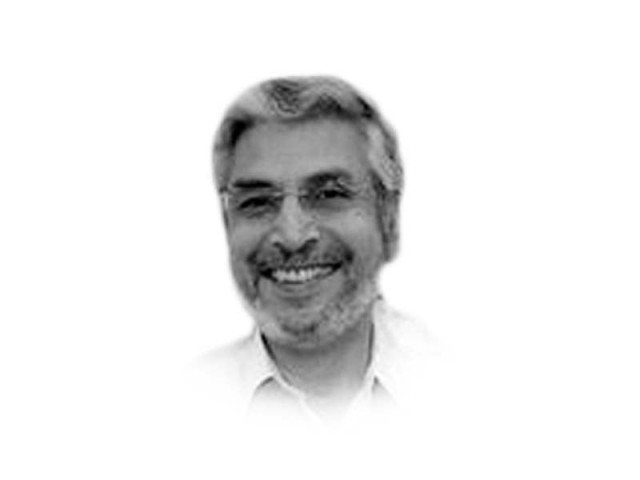Revisiting our intellectual crisis
Many people agree that we have an intellectual crisis in the country

The writer is a clinical psychologist and educationist based in Islamabad
We start with the scientific truism that a newborn does not have any intellectual capacities. The newborn has reflexes of grasping, sucking and rooting. These reflexes contribute to the development of the inborn brain structures, such that basic cognitive abilities like coherent perception and language emerge. As the growing infant interacts with the world, other cognitive abilities like memory, thinking, and perhaps, creativity develop.
The development of these basic intellectual capacities is linked with the physical maturation of the child’s brain and nervous system, so their emergence requires no education or training. Broadly, intellectual development progresses through stages of development, which are loosely tied with age. Progress through the earlier stages is inherent, but through the later stages it is a function of the nature of stimulus-environment of the child, and a relative ‘freedom to act’ on that.
The child’s first environment is the family and community, and later the school. A very large number of variables are in play, but of primary importance are the nature of stimulation to which the child is exposed and the child’s level of freedom to actively explore and experiment. Further, intellectual development is also closely tied to the development of certain aspects of personality. In terms of the latter, central are development of the degree of a child’s sense of trust, autonomy, sense of agency, confidence and reliance on learning from one’s own experience.
In a typical Pakistani family, the child is not seen as an autonomous person, but akin to a possession. The child’s own experiences are largely ignored, or negated, and parents impose their ‘right and true’ interpretations. Parents have numerous expectations and quite an inflexible image of what their child should become, and parenting is geared to moulding the child into that being. Unquestioning conformity is appreciated and encouraged, and the child’s natural urge for activity, curiosity and/or questions are discouraged. The child learns to conform as infraction can result in loss of parental love, disapproval, and worldly punishments.
Notwithstanding, varying early childhood experiences, the school is supposed to help the child build on the basic intellectual capacities. But a typical government school, which the majority of our children attend, is failing in this highly important function. In fact, the school seems geared to (further) stifle the child’s questions, curiosity and intellectual alertness; and is thus detrimental to intellectual growth.
A number of intertwined factors contribute to this failure of our schools. Though the following listing of such factors is not comprehensive, or prioritised, they are the more important ones. The student is expected to passively receive ‘knowledge’; curricula are developed without much consideration for its appropriateness to the intellectual stage, or level, of the learner; there is hardly any activity-based discovery or play learning; memorisation and regurgitation is equated with learning; pedagogy is teacher and book-centred; docility and discipline are over-valued; and student questions are out of the question.
Unfortunately, by and large, the same principles are operative in high schools, colleges and universities. Resultantly, most of even our university graduates do not achieve the higher, scientific, level of intellectual development. As a result, we suffer from a shortage of individuals with the intellectual capacities that are needed to become productive actors in today’s world.
Published in The Express Tribune, November 22nd, 2017.
Like Opinion & Editorial on Facebook, follow @ETOpEd on Twitter to receive all updates on all our daily pieces.















COMMENTS
Comments are moderated and generally will be posted if they are on-topic and not abusive.
For more information, please see our Comments FAQ